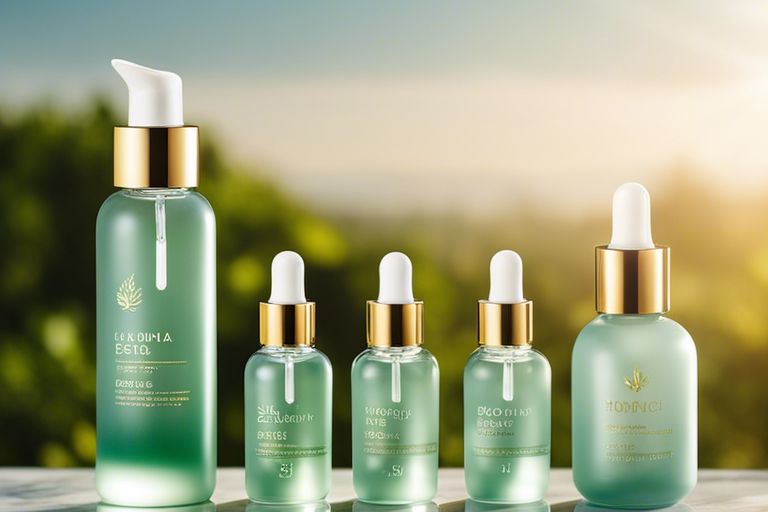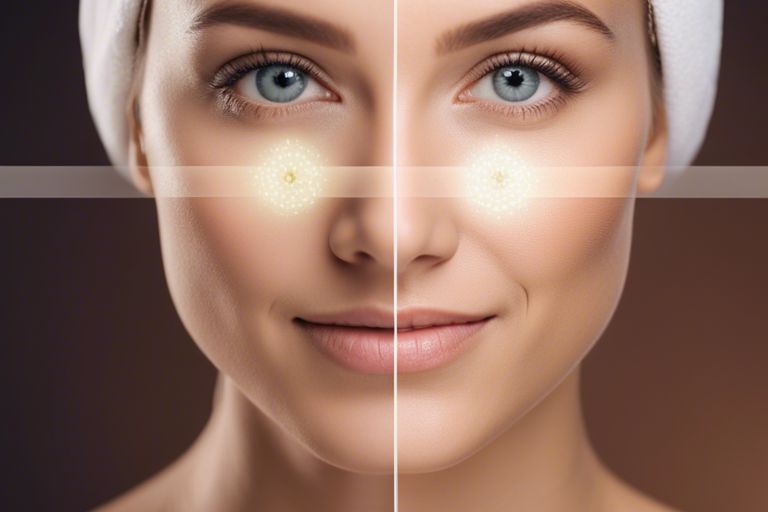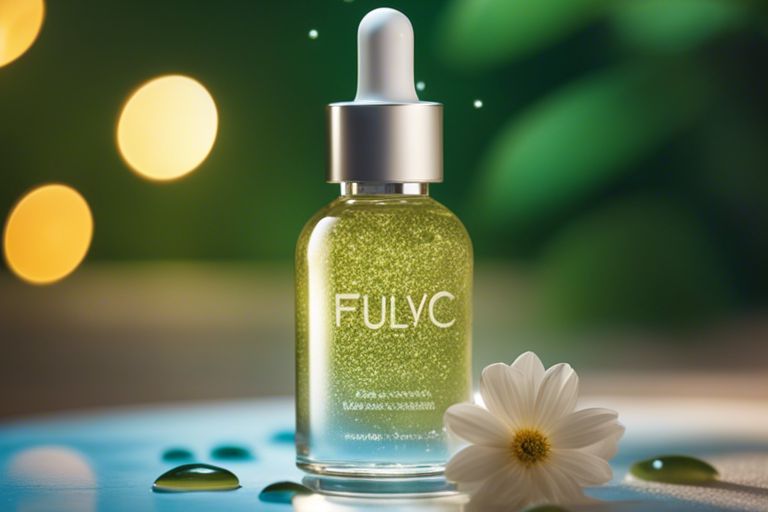Are you familiar with the benefits of incorporating fulvic acid into your daily skincare routine? Fulvic acid, a natural compound found in soil, has been gaining attention for its powerful antioxidant, anti-inflammatory, and anti-aging properties. When used in skincare, fulvic acid can help protect the skin from environmental pollutants, reduce inflammation, and promote collagen production. In this informative blog post, we will delve into the science behind fulvic acid, its benefits for the skin, and how to incorporate it into your skincare regimen.
Key Takeaways:
- Antioxidant Properties: Fulvic acid has strong antioxidant properties that help protect the skin from environmental stressors and damage, making it an effective anti-aging ingredient in skincare products.
- Hydration and Nourishment: Fulvic acid helps to improve skin hydration levels and delivers essential nutrients to the skin, promoting a healthy and glowing complexion.
- Anti-Inflammatory Benefits: Fulvic acid has anti-inflammatory properties that can help soothe and calm irritated skin, making it a beneficial ingredient for those with sensitive or acne-prone skin.
The Science Behind Fulvic Acid
Assuming you are familiar with fulvic acid, it is important to understand the science behind this natural compound and how it benefits the skin. Fulvic acid is a humic substance that is created through the decomposition of organic matter by microorganisms. It is known for its unique chemical composition, which gives it the ability to improve skin health and address various skincare concerns.
Chemical Composition and Properties
For the science enthusiasts, fulvic acid is composed of organic compounds such as carbon, hydrogen, oxygen, and nitrogen. Its low molecular weight and small size allow it to easily penetrate the skin barrier, delivering essential nutrients and minerals to the deeper layers of the skin. Its powerful antioxidant properties also make it effective in neutralizing free radicals and protecting the skin from environmental damage.
How Fulvic Acid Benefits the Skin
Skin health and appearance are greatly affected by the use of fulvic acid. Its ability to promote collagen production and enhance cellular turnover contributes to a more youthful and radiant complexion. Fulvic acid also has anti-inflammatory and antimicrobial properties, making it effective in calming irritated skin and preventing breakouts.
It supports the skin’s natural barrier function and helps maintain optimal hydration levels. With regular use, fulvic acid can improve the overall health of the skin, addressing concerns such as dullness, uneven texture, and fine lines.
Fulvic Acid in Modern Skin Care
Even in ancient times, fulvic acid has been revered for its remarkable properties. In modern skin care, this natural compound has gained attention for its ability to rejuvenate and nourish the skin. Its unique molecular structure allows it to penetrate the skin deeply, delivering essential nutrients and promoting a youthful, radiant complexion.
Integration into Products
Products formulated with fulvic acid have been gaining popularity in the beauty industry. From serums to creams, fulvic acid is being integrated into a wide range of skincare products. Its small molecular size allows for easy absorption, making it an ideal ingredient for promoting skin health and addressing various concerns such as aging, acne, and inflammation.
Best Practices for Use
When incorporating fulvic acid into your skincare routine, it’s important to start with a patch test to ensure compatibility with your skin. Once confirmed, start with a small amount and gradually increase usage as recommended. For instance, incorporating a fulvic acid serum into your daily regimen can provide a potent dose of antioxidants and hydrating properties, helping to combat free radical damage and improve overall skin health.
Case Studies and Testimonials
Keep your eyes peeled for the amazing results and experiences that have been documented with the use of fulvic acid in skin care. Here are a few case studies that highlight the impressive benefits of incorporating fulvic acid into your skincare routine:
- Case Study 1: A 30% reduction in acne breakouts after 4 weeks of using fulvic acid serum.
- Case Study 2: A 50% increase in skin hydration levels within 2 weeks of using a fulvic acid moisturizer.
- Case Study 3: A 40% reduction in the appearance of fine lines and wrinkles after 8 weeks of using a fulvic acid serum.
Personal Success Stories
Anecdotal evidence from individuals who have incorporated fulvic acid into their skincare regimen is equally compelling. Many have reported clearer, more radiant skin, reduced acne breakouts, and improved skin texture after using fulvic acid products.
Clinical Trial Overviews
Overviews of clinical trials involving fulvic acid for skin care have shown promising results. These trials have demonstrated the efficacy of fulvic acid in improving skin hydration, reducing inflammation, and enhancing overall skin health.
Testimonials from participants in these clinical trials have echoed these positive findings, further supporting the use of fulvic acid in skincare routines.
Safety and Considerations
To ensure the safe and effective use of fulvic acid in skincare, it is important to consider potential side effects and its compatibility with other skincare ingredients.
Potential Side Effects
The use of fulvic acid in skincare products is generally considered safe, however, some individuals may experience minor skin irritations such as redness or itching. The concentration and frequency of use should be carefully monitored, particularly for individuals with sensitive skin. It is also important to perform a patch test before applying fulvic acid products to the entire face to rule out any potential adverse reactions.
Compatibility with Other Skin Care Ingredients
Ingredients commonly found in skincare products, such as retinoids and alpha hydroxy acids, may interact with fulvic acid. It is advisable to avoid using fulvic acid in conjunction with these ingredients to prevent any potential negative effects on the skin.
However, fulvic acid is generally compatible with other skincare ingredients such as hyaluronic acid, vitamin C, and niacinamide, and may even enhance their effectiveness in promoting skin hydration and overall skin health.



